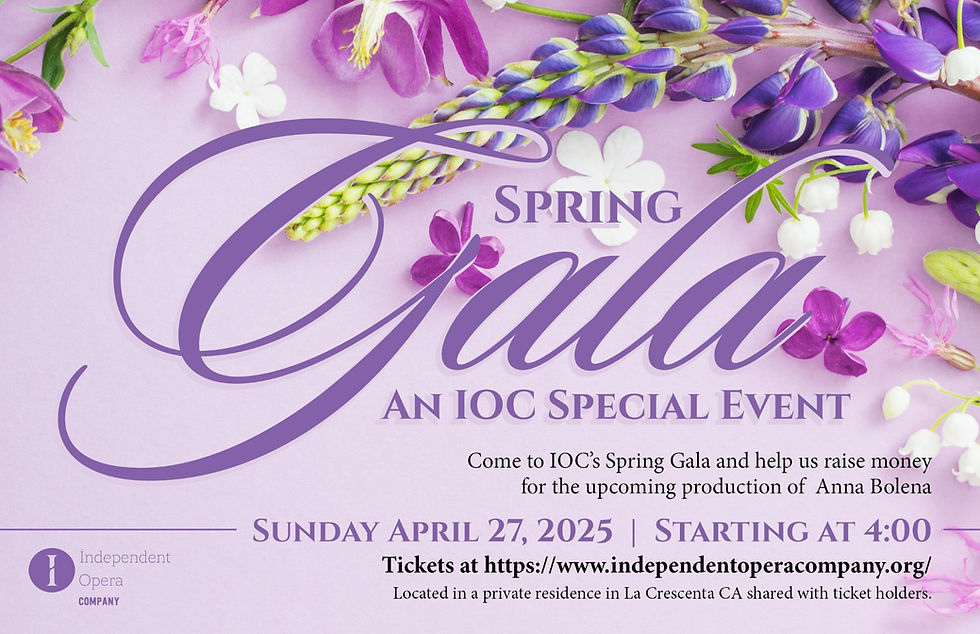About the opera Cossack Beyond the Danube
- Galina Barskaya

- Jun 9, 2022
- 3 min read
According to contemporary accounts, Hulak-Artemovsky based the libretto on a story by the historian Mykola Kostomarov The composer wrote nearly all of libretto, although some poetic phrasings are attributed to his good friend, the journalist V. Sykevych.
The story depicts the events following the destruction of the island fortress of Zaporozhian Sich, the historic stronghold of the Ukrainian Cossacks on theDnieper River.
To tell the story of the freedom-loving Zaporozhian Cossacks of Ukraine,, who had fought against the Russian Empire, Hulak-Artemovsky deliberately set the story in Turkish Lands with the Cossacks fighting for the Sultan. This change of locale helped the work get past the Tsar's censors, who normally banned stories about Ukrainian Cossacks.
Here is some of the story.
The action takes place in the Ottoman Empire in the 18th century.
Act one
It is not easy for ordinary Cossacks to live in a foreign land, under the rule of the Turkish Sultan. Near the hut of the Cossack Karas, his adopted daughter Oksana misses her beloved, the Cossack Andrey. She dreams of flying with her beloved to the native banks of the Dnieper, to live with him in the same nest, in the Ukraine. Friends, like Oksana, who are languishing in a foreign land, comfort the girl and go with her to work in the field. Ivan Karas appears, he is happy, tipsy and at the same time fearful of meeting with his grumpy wife Odarka. But he can't avoid an unpleasant conversation. Odarka showers her husband with abuse, interrogating, "where did you come from." Ivan indulges in various inventions: he assures that he got lost on the way, took sick and almost died, that he spent two nights with her godmother. This finally infuriates the jealous Odarka, and the quarrel takes a menacing turn.
Act two
The Turkish Sultan is restless in his soul. He is not sure of his subjects - the Cossacks. He decided to take a closer look at the life and customs of the Cossacks. This led him to the village, where he expects to be unrecognized, to Ivan's hut. Ivan is surprised when he sees an unfamiliar Turk in his yard. The Cossack suggests that the stranger has arrived for the Mohammedan feast of Bairam, which is said to be attended by the Sultan himself. The guest does not deny this and even invites Ivan to introduce him to the Sultan. Ivan is flattered. Such an event cannot be left unmarked, and Ivan invites the stranger to drink a bottle of vodka with him. When Karas goes to the house for a treat, the Sultan calls his courtier Selikh-Aha and orders him to deliver the Cossack to the palace for the holiday. Ivan does not believe his eyes when he sees another richly dressed Turk near the house instead of the guest who has just left. When Karas puts on this dress, Selikh-Aha suggests that he change his name as well - to be called not Ivan, but Urkhan. Having admired himself enough in the new role of the "Turk", Ivan, accompanied by the Turkish servant Hassan, goes to the palace of the Turkish Sultan for the holiday.
The cossacks are dancing after the day of hard work in the fields, but leave at the approaching of Turkish guard. Oksana and Andriy, having met after a long separation, decide to immediately implement their plan of crossing the Danube and fleeing to their homeland. Circumstances are favorable for them: the night is dark; the boat has long been prepared. But as soon as Oksana and Andrei sail away from the shore, they are noticed by the Turkish patrol, and armed guards rush in pursuit of the fugitives.
Act Three
Returning home from the palace, Ivan continues to act like a Turk. To the stunned Odarka, he informs that his name is Urkhan, that he soon needs to go to the mosque to pray to Allah, and that he is going to marry three Turkish women. The surprised wife at first thinks that Karas is talking nonsense from drinking, but what then does Turkish clothing mean? Odarka's bitter complaints about her fate are interrupted by the arrival of the Turkish imam.
What will happen to Ivan, Oksana, Andriy and all other Cossacks in exile? You need to come to the opera to find out!
Tickets are available at https://zaporozhets.brownpapertickets.com/



























Kommentare